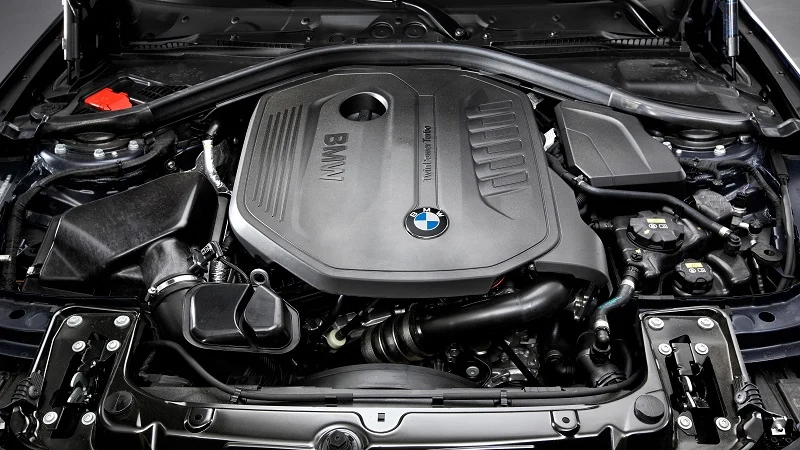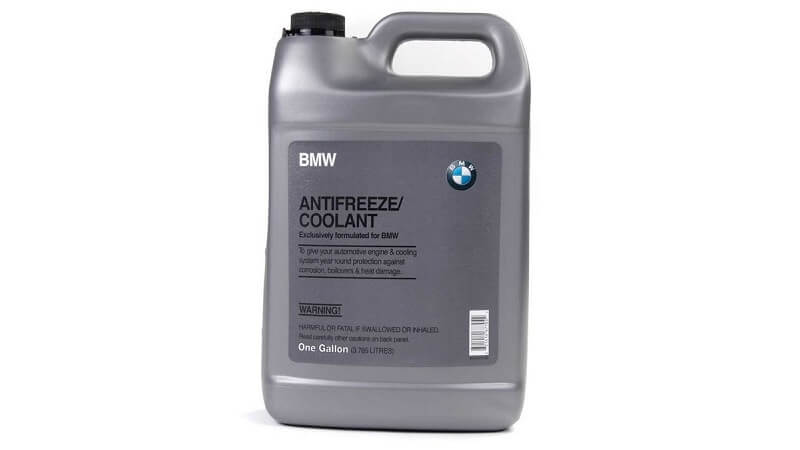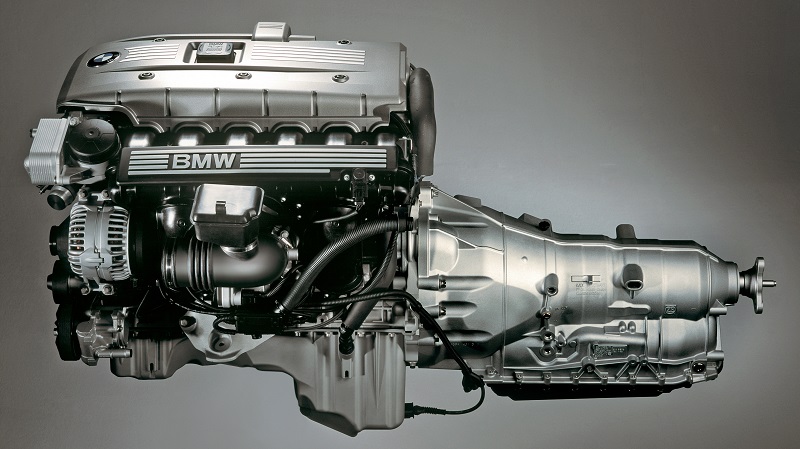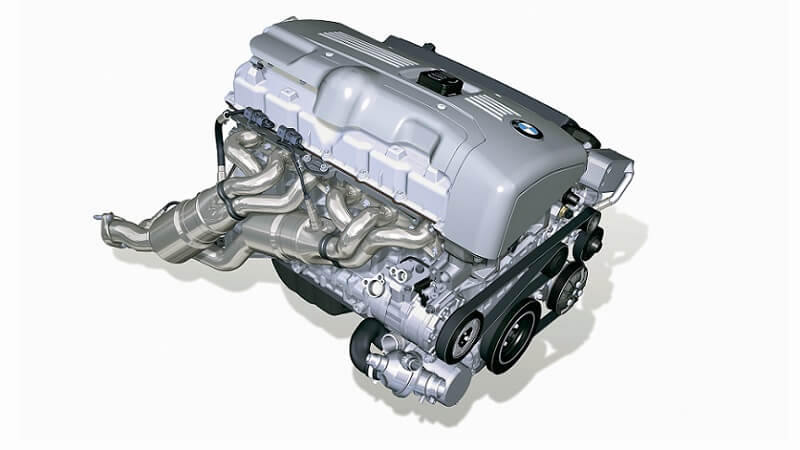The BMW B58 engine is a testament to the German automaker’s commitment to performance, efficiency, and cutting-edge engineering. Renowned for its power delivery, smoothness, and reliability, the B58 engine has found its way into various BMW models, captivating enthusiasts and casual drivers alike. However, like any sophisticated machinery, the B58 engine demands meticulous care to maintain its peak performance, with one critical aspect being the management of coolant levels.
BMW B58 coolant loss isn’t just a minor inconvenience; it’s a potential precursor to serious engine damage if left unaddressed. Understanding the causes, symptoms, and solutions associated with coolant loss is paramount for maintaining the health and longevity of these high-performance engines.
This comprehensive guide will cover the intricate details of BMW B58 coolant leakage. We offer guidance on its causes, symptoms, diagnostic procedures, solutions, and preventive actions to help BMW owners protect their precious vehicles.

Understanding the BMW B58 Engine
The BMW B58 engine, introduced in 2015 to replace the N55, epitomizes BMW’s engineering prowess with its blend of power, efficiency, and reliability. It delivers robust performance across diverse driving conditions and features an inline-six configuration, a single twin-scroll turbocharger, direct fuel injection, and variable valve timing.
Central to its design is a sophisticated cooling system composed of components like the radiator, thermostat, water pump, hoses, and coolant reservoir. This system efficiently manages engine temperature by circulating coolant through the engine block and cylinder head to absorb heat from combustion. The heated coolant then passes through the radiator for cooling before recirculation.
The B58 engine can experience cooling system issues like coolant loss despite its advanced design. These can stem from various causes, including external leaks from damaged hoses or seals and internal faults such as a malfunctioning water pump or head gasket failure.
How much coolant loss is normal for BMW?
The cooling system is a closed structure; any reduction in coolant level signifies a leak, as the system is designed to retain its coolant. So, it is abnormal for your BMW to lose any coolant as it indicates only a leak.
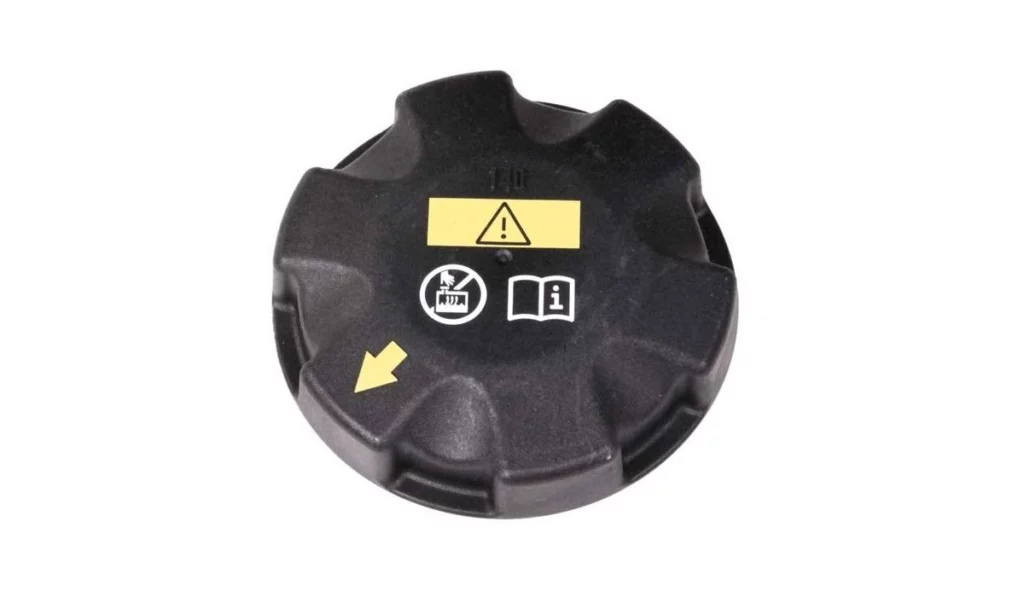
Symptoms of BMW B58 Coolant Loss
After understanding the workings of the cooling system and its relevance to the BMW B58 coolant loss, the next step is to identify the potential signs for such an issue that must be resolved as early as possible. Keep an eye out for the following symptoms.
Visible Coolant Leakage
The most obvious sign of B58 coolant loss is the presence of coolant puddles beneath the vehicle or visible leakage from components such as hoses, the radiator, or the water pump. Inspecting the ground beneath the vehicle for coolant stains can help identify external leaks.
In the cases of slow coolant leaks, the antifreeze residue may be visible on the engine components or surfaces. It is typically characterized as a powdery trace or dried-up coolant.
Low Coolant Alarm
The BMW B58 engine utilizes a low coolant level warning system, common in modern vehicles. When coolant levels dip below a certain level, a warning light or message on the instrument panel notifies the driver, signaling a possible coolant loss issue that requires attention to maintain optimal engine performance and prevent overheating.
Why is my coolant low but no leaks?
If your coolant level is low but there are no apparent leaks, a very small leak could still be present, which may not be immediately visible during diagnosis. Overheating the cooling system can cause overpressure, leading to loss of coolant with visible leaks around the coolant reservoir cap.

Coolant Odor
A sweet smell from the engine bay can signal coolant leakage. This sweet smell is a telltale indication of coolant loss, warranting a quick investigation to address potential issues and prevent engine overheating.
White Smoke
When your BMW’s turbocharger or head gasket fails, coolant can enter the combustion chamber and be burned off in the engine. This creates white smoke from the exhaust, and you might also notice a smell of coolant coming from the exhaust.
Milky Oil
Coolant contamination in the engine oil can produce a milky or frothy appearance on the oil filler cap. This indicates a serious engine issue, such as a failed head gasket or cracked cylinder head, requiring immediate repair.
Causes of B58 Coolant Loss
So you have an idea about the signs to look for when dealing with a B58 coolant loss; what’s next? The next step is to point out the components that lead to coolant loss issues when failed. It can stem from various factors, ranging from minor leaks to more serious mechanical issues. Here are some common reasons for B58 coolant loss.
Water Pump Leakage
The most reported cause of the B58 coolant loss is water pump leakage. Leakage on the weep hole or its sealing surface often indicates this. This typically signifies internal seal deterioration or bearing failure within the water pump assembly, necessitating its replacement to prevent further coolant loss and potential engine damage.

Item number 1 shows the water pump assembly
Coolant Reservoir Cap Leak
The coolant reservoir cap is crucial for maintaining proper pressure in the cooling system. A faulty cap can lead to a gradual loss of coolant due to leaks. When the cap doesn’t seal properly, coolant can escape as vapor or liquid, causing a decrease in coolant levels over time. This can result in overheating and potential engine damage if not addressed early.
Can I drive my BMW with low coolant?
Driving your BMW with low coolant levels can cause serious problems like engine damage, decreased performance and fuel efficiency, and a higher chance of breakdowns.
Turbocharger Leaks
The turbocharger, integral to the B58 engine’s performance, is another cause of the B58 coolant loss. Leaks in the turbocharger coolant lines or seals can lead to the gradual depletion of coolant. Timely detection and repair of turbocharger leaks are essential to prevent coolant loss, maintain turbocharger efficiency, and avoid potential engine overheating.
Coolant Reservoir Leaks
If the coolant reservoir develops leaks or the level sensor malfunctions, immediate replacement is vital to prevent further coolant loss and uphold optimal fluid levels for effective cooling.
Faulty Head Gaskets
A failed head gasket can allow coolant to leak into the combustion chamber or engine oil passages, resulting in coolant loss. This is the least common cause and is more expensive than other components’ failures. It is often accompanied by white exhaust smoke or milky oil symptoms.
Get Genuine BMW parts at Discount Rates
Welcome to Bimmers.com, where we’re reimagining how you shop for premium BMW and OEM components. We’re not just another online automotive parts vendor; we’re pioneers, setting a new standard in the industry. Our mission is crystal clear: to empower every car enthusiast with easy access to top-tier parts, all at prices that won’t break the bank.
Driven by a passion for excellence, we’re committed to revolutionizing how you maintain your vehicle, making it accessible and affordable for everyone. Each item in our inventory is handpicked to match your BMW’s exact specifications, ensuring that every component meets the rigorous standards of original equipment manufacturers.
At Bimmers.com, we’re more than just a supplier; we’re your trusted ally in keeping your car running smoothly. We believe in striking the perfect balance between affordability and uncompromising quality. Our goal? To provide you with significant savings without sacrificing the integrity of your vehicle.
Recognized as the ultimate destination for BMW enthusiasts who demand nothing but the best, we take immense pride in being the preferred choice for savvy buyers who value reliability and unparalleled value in every automotive purchase. So, if you’re ready to elevate your driving experience without breaking the bank, you’re in the right place.
Diagnostic Steps to Address B58 Coolant Loss
We are slowly moving towards the solution and repairs section for the B58 coolant loss. But before we move further, following a system procedure to address the issue is equally important. Here are the systematic steps to approach the B58 coolant loss issue.
Visual Inspection
First, check the coolant level when it is cold. If the coolant level is good at the maximum level, while not over, it hints that the coolant level sensor is damaged or defective. Inspect the engine bay and underside of the vehicle for signs of coolant leakage. Look for wet spots, dried-up coolant stains, or puddles indicating the leak’s location. Pay close attention to hoses, connections, the radiator, the water pump, and other cooling system components.
Pressure Testing
To ensure the integrity of your cooling system, conduct a pressure test by pressurizing it with a hand pump or specialized tool. Monitor for pressure drops, which indicate potential leaks. Simultaneously, pressure test the coolant reservoir cap and check if it operates properly. Replace the cap if needed. This dual approach ensures a thorough assessment of your system’s health within the same time frame.
Inspect Turbocharger for Coolant Leak
Inspect the turbocharger for leaks, particularly through the coolant lines and inside its impellers. These interior leaks, which are not visible from the outside, are caused by compromised seals and gaskets. Identifying these issues is critical since they can cause hidden coolant loss.
Combustion Gas Leak Test
In cases where coolant loss is suspected due to internal engine issues, such as a blown head gasket, a combustion gas leak test must be performed. This test involves using a chemical tester to detect the presence of combustion gases in the coolant, indicating a possible head gasket failure.
Fluid Inspection
Check the oil and coolant for signs of cross-contamination. These can provide valuable clues about the underlying cause of coolant loss and guide further diagnostic efforts.
DIY Solutions for the BMW B58 Coolant Loss
Here is the actual course of action to be implemented to solve your BMW’s B58 engine coolant loss issue. It also includes common strategies and DIY solutions for addressing coolant loss.
Water Pump Replacement
If coolant loss is attributed to a faulty water pump, which in many cases it is, replacing the water pump assembly is the most suitable solution. This involves removing the old water pump and installing a new one to restore proper coolant circulation and prevent further leakage.
Before start replacing the water pump, follow these safety measures
- Work in a well-ventilated area
- Allow the engine to cool
- Use personal protective equipment such as gloves and goggles
Tools required
- Socket set with various sizes
- Torx bits
- New water pump
- Coolant
- Drain pan
- Gasket scraper
- Gasket sealant (if needed)
- Jack and Jack stand
Now follow these steps for the BMW B58 water pump DIY replacement
- Open the engine bay and remove the engine covers
- Disconnect the Battery
- Drain the Coolant
- Remove the Serpentine Belt
- Remove the Water Pump
- Clean the Mounting Surface
- Install the New Water Pump
- Reinstall the serpentine belt and other connectors
- Refill Coolant (50-50 mix of coolant and distilled water)
- Reconnect the Battery
- Test Drive
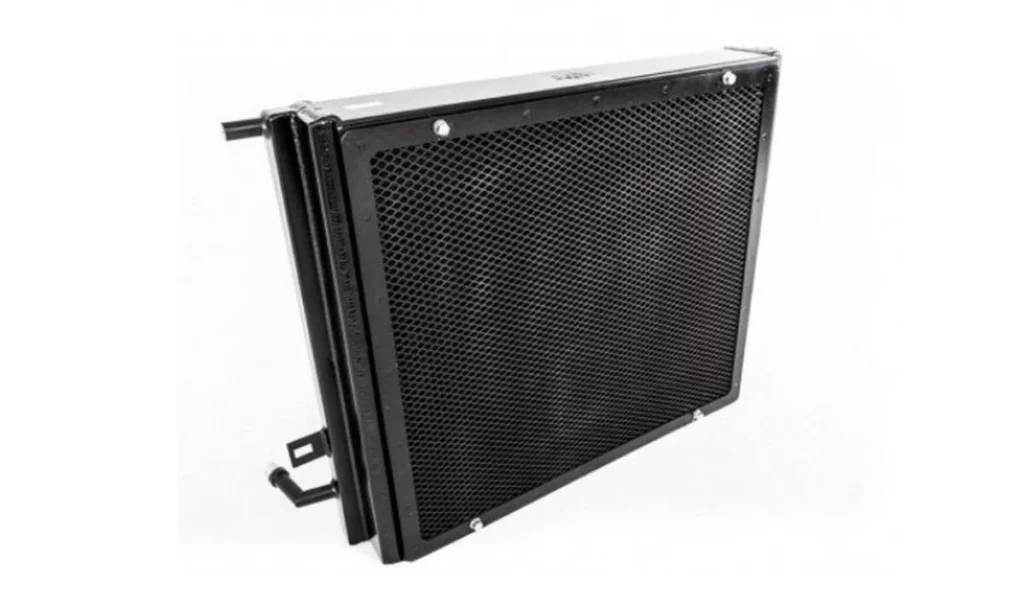
Radiator Replacement
A radiator replacement is necessary if coolant loss is due to radiator leaks. This involves installing a new radiator assembly to restore proper coolant containment and prevent overheating.
Coolant Reservoir Replacement
Damaged or faulty coolant reservoirs should be replaced to prevent further coolant loss. Cracks, fractures, or leaks in the reservoir can compromise the integrity of the cooling system and lead to coolant depletion.
Turbocharger Replacement
If internal coolant leakage, commonly linked to turbocharger issues, is detected, replacing the turbocharger may be necessary. Conversely, external leaks stemming from faulty coolant line gaskets may demand hose or gasket replacement for resolution.
Use BMW Approved Coolant
Use genuine BMW coolant or an equivalent coolant recommended by the manufacturer. Avoid mixing different types of coolant, as this can lead to chemical reactions and damage to the cooling system components.
System Flush and Refill
After repairing the cooling system, perform a coolant system flush to remove any contaminants or debris that may have accumulated. Refill the system with fresh coolant to the appropriate level and ensure proper bleeding of air from the system.

Item number 15 shows the main coolant reservoir
Preventive Maintenance Tips
Preventive maintenance is crucial in minimizing the risk of coolant loss and ensuring the long-term health and performance of a BMW B58 engine. Here are some proactive measures to help prevent coolant loss:
Regular Inspection
Perform routine visual inspections of the cooling system components, including hoses, connections, the radiator, the water pump, and the coolant reservoir. Look for signs of wear, damage, or leaks, and address any issues immediately.
Coolant System Service
Follow the manufacturer’s recommended maintenance schedule for coolant system service. This may include coolant flushes and inspection of cooling system components for proper operation.
Use Genuine BMW Parts
When replacing components in the cooling system, use genuine BMW or OEM parts. This ensures compatibility, reliability, and optimal performance of the cooling system.
Avoid Harsh Driving Conditions
Avoid harsh driving conditions such as driving over rough terrain or towing heavy loads. Maintaining a smooth driving style helps preserve the integrity of cooling system components.
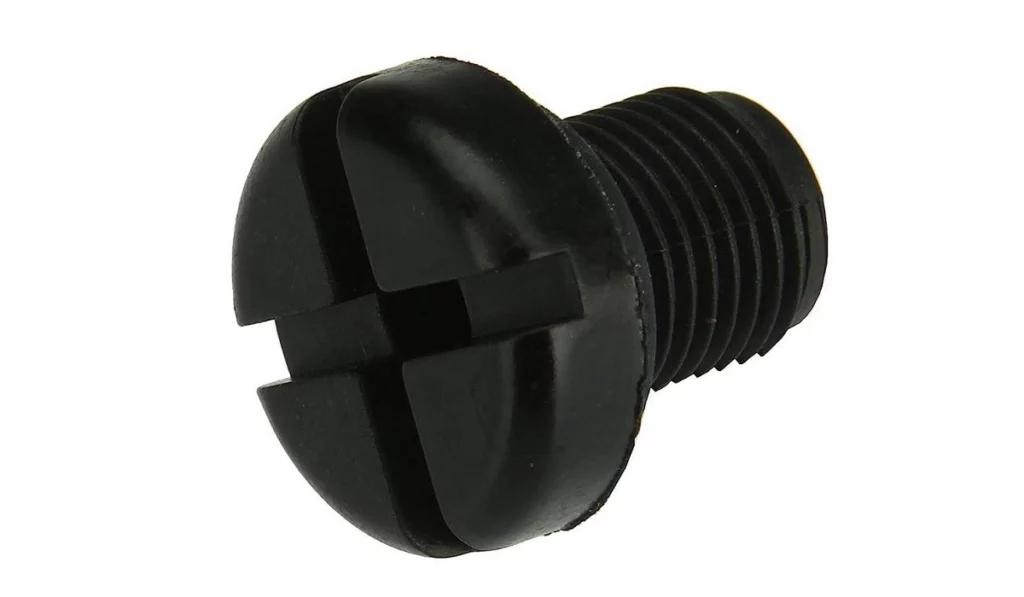
Monitor Coolant Levels
Check the coolant level in the reservoir regularly to ensure it is within the recommended range. Top up the coolant as needed with the appropriate type and mixture ratio specified by the manufacturer.
Address Overheating Early
If the engine temperature gauge indicates overheating or other symptoms of coolant loss are observed, address the issue early to prevent further damage.
Maintain Engine Cooling Efficiency
To keep the engine cooling system in optimal condition, ensure proper airflow to the radiator, clean debris from cooling fins, and inspect the cooling fan for proper operation.
Fix BMW B58 Coolant Loss Using Quality BMW Water Pumps
Concerned about the notorious BMW B58 coolant loss issue? Look no further than Bimmers.com, your go-to destination for top-quality solutions tailored to your BMW maintenance needs.
At Bimmers.com, we understand your desire for reliable performance and peace of mind. That’s why we offer a vast selection of genuine BMW and OEM water pumps designed for the B58 engine. Rest assured, our water pumps meet BMW’s stringent standards, guaranteeing a perfect fit and dependable performance.
But that’s not all. Our inventory includes various supportive components for the BMW B58 cooling system, such as radiators, reservoirs, and other essential hardware. With Bimmers.com, you can complete all your vehicle’s maintenance needs in one convenient place.
So why wait? Visit Bimmers.com today to discover the quality BMW gaskets and components you need for unparalleled performance on the road. Drive confidently, knowing you’ve got the best in the business backing you up.

